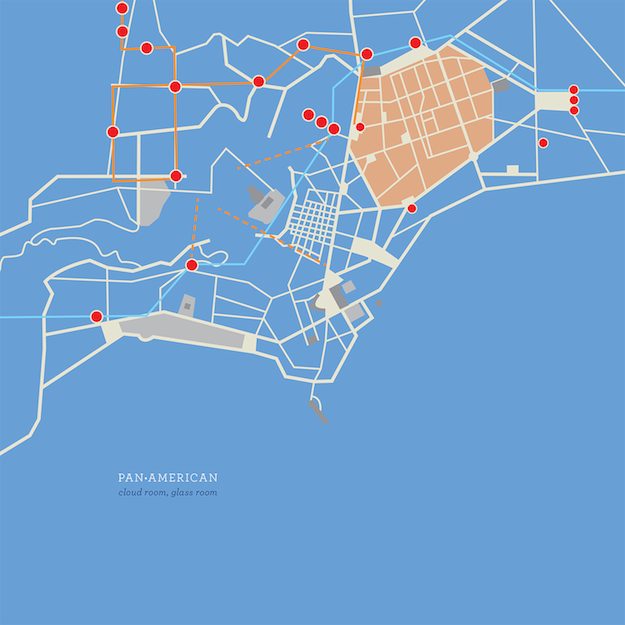 Pan•American's first record in four years comes timidly, marked by magnificently produced songs on eggshells and generally downplaying every one of its own notes. Now a performing band with the addition of Steven Hess and former Labradford bandmate Bobby Donne, the project of Mark Nelson adds a few elements of traditional rock music to his palate but only in the scarcest concentrations possible. What was once scattered becomes rhythmic, melodic, and occasionally more sporadic but still as sparse.
Pan•American's first record in four years comes timidly, marked by magnificently produced songs on eggshells and generally downplaying every one of its own notes. Now a performing band with the addition of Steven Hess and former Labradford bandmate Bobby Donne, the project of Mark Nelson adds a few elements of traditional rock music to his palate but only in the scarcest concentrations possible. What was once scattered becomes rhythmic, melodic, and occasionally more sporadic but still as sparse.
Touting this as a "live band" record as Kranky has done gives me a different sense of interpreting each song on the album. The opener, "The Cloud Room," is as much crystalline production as it is musicianship, where each note sounds like a long night's labor in the making. Nelson's bowed guitar wafts along in dim decaying tones and Bobby Donne's bass hums patiently, while Steven Hess' excellent drumming, especially in his persistent use of riveted cymbals, glimmers with glassy beauty. "Fifth Avenue 1960" stirs the placid waters with an irritating high pitched sine amidst deep thunderous rumbling, and "Relays" uses a 4/4 kick pattern like a heartbeat, crossing effortlessly back and forth between ambient music and some distant cousin of dub techno's watery pulse.
The new dynamic makes for an easy entry into different song styles. With even the slightest addition from Donne's bass, Pan American turns "Project For An Apartment Building" into mock techno where it was at first a meandering clatter of hi hats and distant drones. Hess' contributions feel the most substantial, improving a multitude of songs heavy in middle frequencies by adding crisp, distinctive drum patterns. Only on the final track, "Virginia Waveform," does it feel like they are cutting loose, and even then it's a patient, cyclical, scholarly looseness, exactly as free and jammy as Mark Nelson had dictated they were allowed to be. For the most part, though, the band's chops lie in their jazzy simplicity, adding only the most necessary notes to complete the picture. So I don't fault Nelson for this more subtractive approach to performing.
In fact, the band often reaches such an immediate consummate atmosphere, just lingering on its perfect notes, that it seems an afterthought to fill it with direction. If I had to hold one major complaint against the album, it would be that once the band's pastoral ambiance is established, Pan•American often has no idea what to do from there besides listlessly wandering, appreciating their own schemes and textures like they were staring at monuments. Still, it's a gorgeous piece of audio tourism, so I'm content to just listen and drift along to it too.
samples:
Read More

